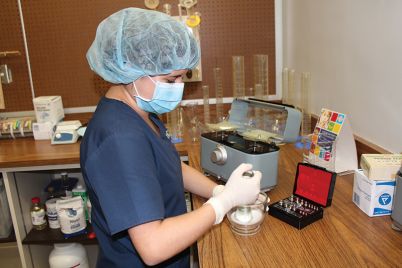St. Petersburg College is addressing Florida’s nursing shortage by offering a new evening and weekend track for an associate degree in nursing at the Clearwater Campus.
CLEARWATER — With a projected deficit of 59,100 nurses in Florida by 2035, 37,400 of those being RNs and 21,700 licensed practical nurses, St. Petersburg College’s nursing program is looking for ways to get more people into the profession.
One way SPC addresses the problem is by offering a new evening and weekend track for the associate degree in Nursing program at the Clearwater Campus.
New schedule
Assistant Dean of SPC’s College of Nursing, Dr. Clare Owen, said the new schedule is designed to meet the needs of students who wish to pursue a nursing associate degree but cannot attend classes during weekdays.
“This track is for anyone who wants to become a nurse but has to continue working full time, has family commitments or childcare issues that make it hard or impossible to attend traditional day classes during the week,” Owen said.
Students in the night and weekend track must be available two to three evenings per week from 5 to 10 p.m. for theory and lab classes. Every Saturday, students will be assigned to a clinical rotation at a hospital from 6:30 a.m. to 5 p.m.
The application period for the Fall 2022 night and weekend programs has ended, but Owen said that’s OK.
“Anyone who would like to participate in the program should go ahead and apply to SPC so that they can be assigned an advisor, and we can see any prerequisite classes they may need,” Owen said. “That way they can go ahead and take classes in Fall and Spring terms and in March, apply for the Fall 2023 program.”
SPC will be holding an information session on June 22 for those interested in pursuing their Associate in Science degree in Nursing. Get more information or sign up at stpe.co/asninfosession62222.
A holistic approach
The college is also taking a more holistic approach to determining student admissions in nursing, considering factors like GPA, standardized admission test scores, a video interview, and considerations for having had experience in the health care field. Owen said the faculty and staff are excited about the opportunity to open the door to the program a little wider, making way for students who thought they might not be able to make their dreams of being a nurse come true.
“The previous way we’d done it was mainly based on GPA,” Owen said. “Many colleges of nursing, medicine, and pharmacy are realizing that GPA isn’t necessarily a great indicator of success. We want to look more at the whole person, their experiences, and their motivations for becoming a nurse.”
Owen noted that the evening and weekend track opens the door for people who can’t go into a traditional program and addresses the nursing shortage at the same time.
“The evening/weekend track will allow people to have the career of their dreams while allowing time for family, work, and even rest time for that student.”








